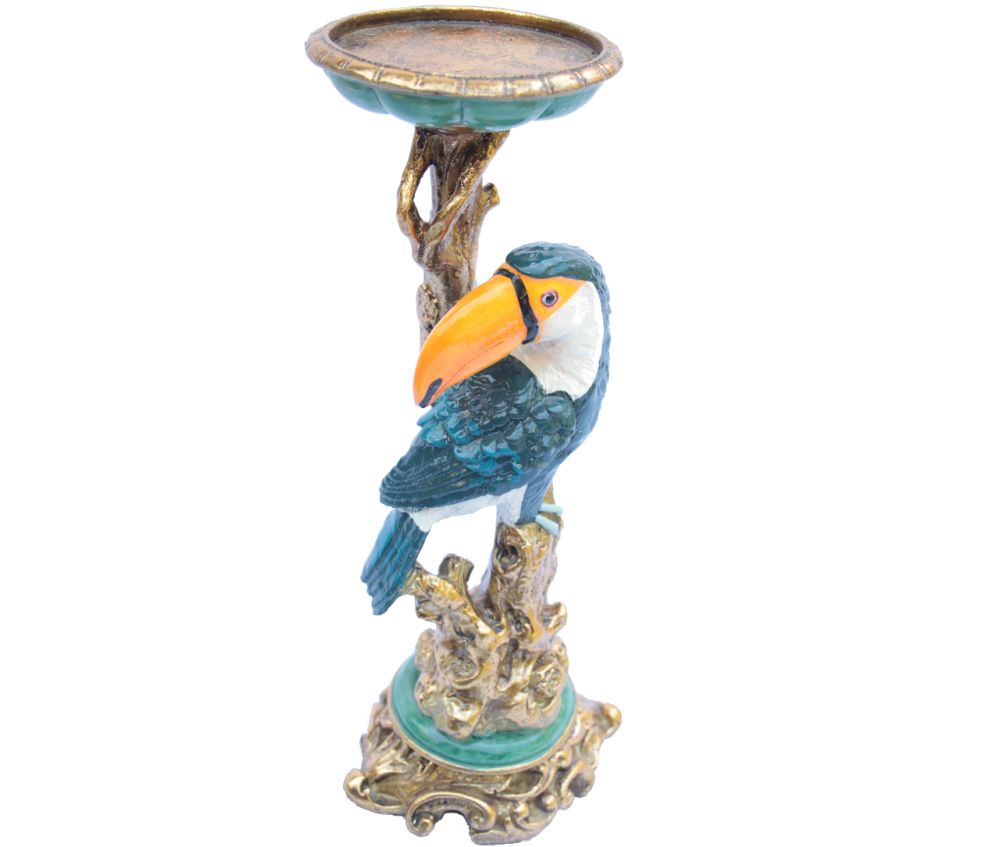We use cookies to make your experience better.
TimmersGems has a new website, existing customers also need to register again.
Beautiful toucan completely hand-painted from Peru.
Entirely hand-crafted toucan that is entirely hand-made in Peru. Nice as tropical decoration.
Availability:
In stock
SKU
11448
- Buy 3 for €16.50 each and save 13%
Toucans (Ramphastidae) are a family of birds of the order woodpeckers native to Central and South America. The family has 47 species. Although the beak of the toucan resembles that of hornbills, these animals are not closely related. The toucan is between 35 and 60 centimeters high. The wings are relatively short and the tail is quite long. His back feathers are glossy black and he often has a brightly colored plumage on his chest. The legs are built like those of the woodpecker, with two toes pointing forward and two toes pointing back. Males and females look the same. The most striking feature of the toucan is its large yet feathery multicolored bill, which is sometimes half the length of the animal itself, but usually about a third of its body length. This bill consists of horn, which is supported by a network of bone. According to scientists in Science, the huge bill acts as a cooling system, much like an elephant's ears. They found that the temperature of the beak changes rapidly as the environment gets warmer or cooler. This allows the toucan to quickly lose excess body heat. Moreover, the toucan can inflict an ugly blow with its beak, but birds with much smaller beaks are also capable of this. Often birds have a beak that is tailored to the food that the animal eats. The beak of the toucan, which feeds mainly on small fruits, is indeed the correct length, but much too large to provide much benefit when eating.
| Dimensions | 25 cm |
|---|---|
| Country of Manufacture | Peru |












